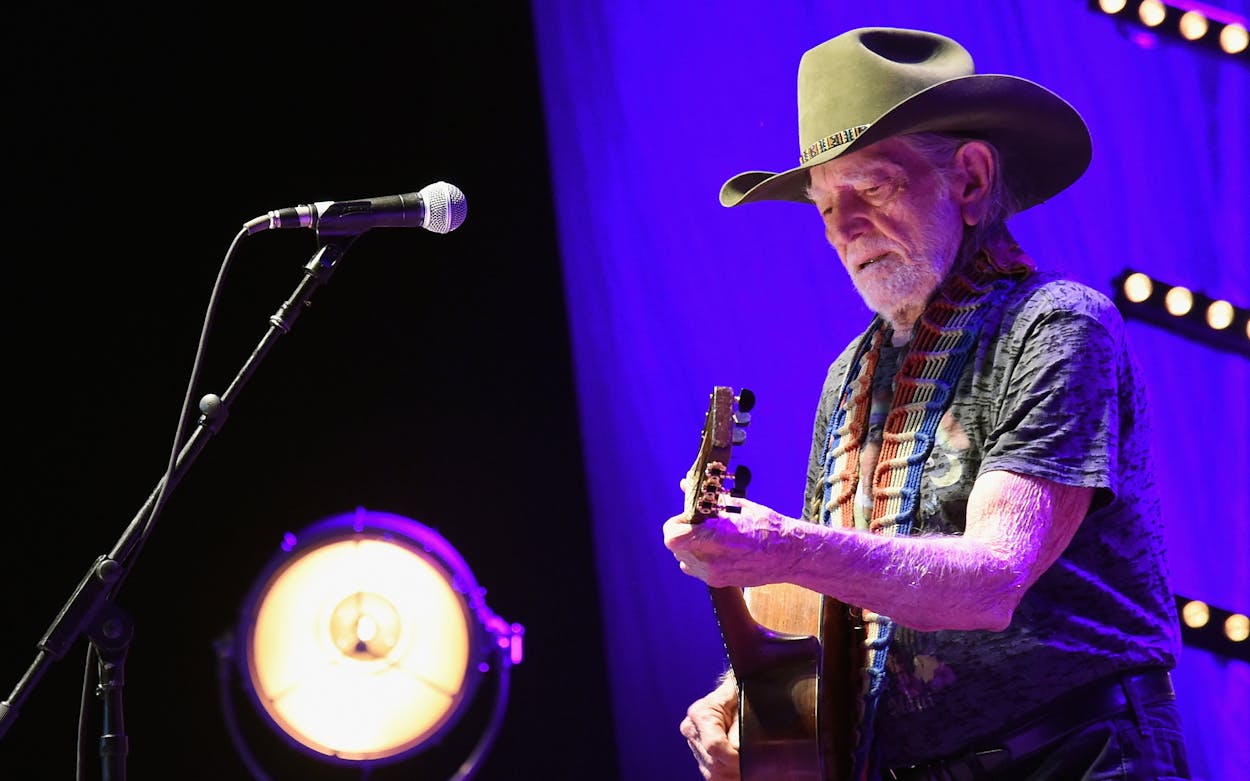There are few things that bring us all together in these divisive times. Football fell off the list over the past couple years—now, choosing whether or not to watch the NFL is a political statement akin to planting a yard sign in front of the curb. Enjoy the wasteful convenience of a Keurig coffee maker? That marks you as a liberal—conservatives smashed theirs last year, after the company removed its advertisements from Sean Hannity’s show. And now, it seems, we’ve lost Willie Nelson as a unifying force.
Earlier this week, Nelson announced that he would headline a concert at the end of September in support of Democratic Senate hopeful Beto O’Rourke. A press release announcing the event claimed that the rally would be the first time that the Red-Headed Stranger lent his voice (and guitar) to a political campaign, but that’s a stretch: A private concert he played in 2014 for then-Democratic gubernatorial candidate Wendy Davis was reported as a $250,000 in-kind donation. He endorsed his friend and occasional collaborator, Kinky Friedman, in Friedman’s quixotic campaign to be Texas agricultural commissioner in 2010. In 2006, he appeared in a TV ad for Vermont Senator Bernie Sanders. He played events for Ann Richards in the early nineties. In 1972, he performed at a rally at Austin’s Zilker Park in support of the Democratic Party’s presidential nominee, George McGovern.
So Willie hasn’t changed. He’s never been a shut-up-and-sing type, and his politics haven’t taken a hard left turn. He is who he’s always been—a supporter of progressive Democrats, unconcerned if that support might alienate his more conservative fans. And until recently, it mostly hasn’t. But judging by comments on his Facebook post announcing the show, some conservatives are abandoning Willie after decades of fandom.
The backlash is symbolic of the unprecedented divide in our political discourse. We’ve never all agreed on politics, despite the myths of unity in our past. Americans may have fought for a common cause in WWII, but the post-war era was marked by racial and gender inequality that allowed for unity only among a certain subset of the population. We treat the post-9/11 era as a time when all Americans were on the same page, but ask the Dixie Chicks about that fallacy.
The years that have followed have seen things grow even more divisive—but we shared, at least, a common culture. There were aspects of life that weren’t defined by politics. Democrats and Republicans alike could cheer for Troy Aikman (a Republican) or check out a new Star Wars movie. Now, of course, football is a political third rail and social conservatives are re-editing Star Wars movies so they better reflect their worldview. (Today, it seems, we are united only by a shared interest in dinosaurs, as it’s unlikely for the Pleistocene era to take sides on social or political issues.)
We can argue whether those previously neutral things changed their identities over recent years—if Star Wars, a saga of rebels attempting to fight off a totalitarian government, only became political in 2017, or if NFL players’ politics only became relevant once they began kneeling during the national anthem. But there’s no need to have those arguments about Willie. He is, if nothing else, a bastion of consistency throughout his career. He plays the same guitar, records with the same stripped-down production, plays with many of the same musicians, maintains the same values, and expresses them in the same way, by lending his talent to people and causes he supports. As we try to untangle a culture in which everything feels more politically divisive than ever, the fact that someone as steadfast as Willie Nelson is suddenly being treated as hyper-political might give us some clues about what happened. It might not be the culture that’s changed as much as we think. It might just be us.
- More About:
- Music
- Willie Nelson
- Beto O'Rourke








